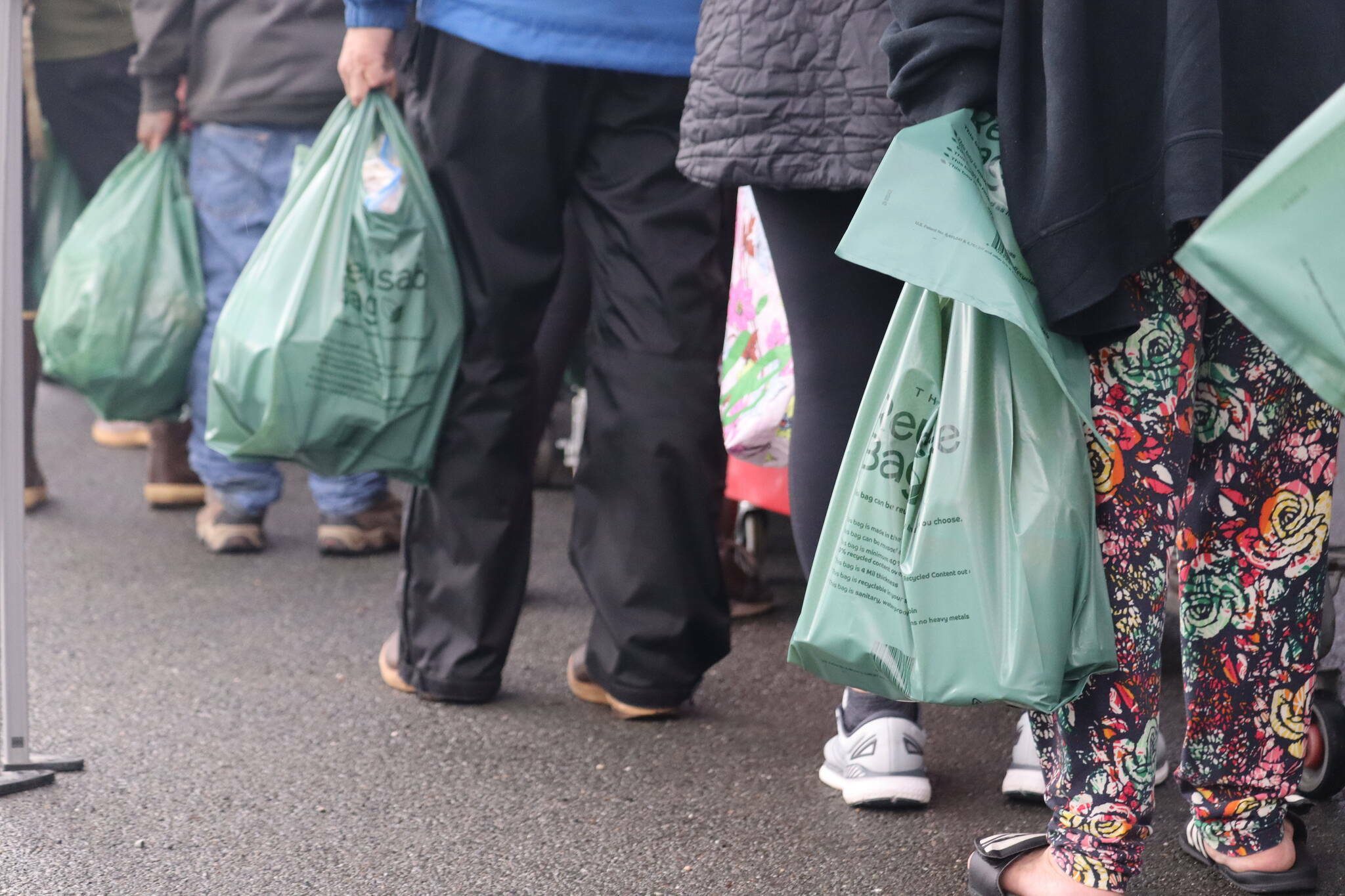The Dunleavy administration is offering differing reasons for being one of 15 states not participating in a federally funded summer food assistance program for low-income families with children. It declared this week the state’s backlog of food stamp applications is the cause, after citing administrative costs and requirements of the program two weeks ago.
However, the head of the state’s food stamp program said last week the backlog should be cleared by mid-March, well before the summer program begins. Also, Alaska’s decision is consistent with past actions when it was among a tiny minority of states not participating in a pandemic-era version of the program.
A total of 35 states, the District of Columbia, all five U.S. territories and four tribes signed up for the Summer Electronic Benefits Transfer program, or Summer EBT, by the Jan. 1 deadline. It provides $40 a month per-child for three months to families with children who are eligible for free or reduced-price lunches, which is about half of Alaska’s kids.
All 15 states rejecting the program have Republican governors, who have cited varying reasons. Iowa Gov. Kim Reynolds said she saw no need to add money to a program that helps food-insecure youths “when childhood obesity has become an epidemic,” while Nebraska Gov. Jim Pillen said “I don’t believe in welfare,” according to the Washington Post.
The program was first tested in several states about a decade ago and implemented nationally during the COVID-19 pandemic. It was permanently authorized in the Consolidated Appropriations Act of 2023 and is being administered starting this summer by the U.S. Department of Agriculture.
Alaska’s Department of Education and Early Development (DEED) operated the pandemic-era EBT program during its first year. But Alaska was one of two states not approved for participation in the pandemic EBT program during the summer of 2022 and seven states not approved during the summer of 2023, according to the USDA.
When asked by the Empire in late December if Alaska intended to participate in the Summer EBT program in 2024, Laurel Shoop, a special assistant and legislative liaison for DEED, stated in an email the administration would decline due to the requirement that the state pay half of the administrative costs.
“The cost and administrative requirement to create a new EBT issuance program either with DEED or in coordination with a partner agency greatly exceeds the benefit that would be issued to children,” she wrote in an email. “DEED is currently pursuing other avenues to increase (availability) of nutritious foods to children during the summer months through the Summer Food Service Program. Alaska remains open to the option to pursue Summer EBT in future years should it become more feasible to implement.”
However, on Thursday an article in the Anchorage Daily News cited “a major food stamps backlog at the Alaska Division of Public Assistance as the reason for opting out of the program, which would have increased the workloads of staff who have been struggling for nearly a year to process benefits in a timely way.”
“Eligibility technicians are working hard to clear up the backlog of SNAP applications and expect to have that completed by this Spring,” Caroline Hamp, a DEED spokesperson, told the ADN in a statement Wednesday. “Once the backlog of SNAP applications has been cleared, the departments will reconsider launching the (program).”
The state’s next chance to apply for the program will be for the summer of 2025.
Spokespeople for the governor’s office declined to comment to both the Empire and ADN when asked about the reason for not participating, referring questions to DEED.
The food stamp backlog has been a crisis for the state since August of 2022, with the number of pending applications peaking at more than 14,000 before reportedly being largely resolved by September of 2023. However, further problems pushed the backlog to more than 12,000 toward the end of the year, although state Division of Public Assistance Director Deb Etheridge said last week the backlog was down to 8,000 and a new online application process was expected to help meet the division’s goal of clearing the backlog by March 15.
The Empire, in inquiries in December, asked if the food stamp backlog would affect the administration’s decision about the summer EBT program. Shoop’s email did not address the question and inquiries to officials at the Department of Health, which includes the public assistance division, were referred to DEED.
Attempts to contact Hamp for a response about the discrepancy were unsuccessful Thursday.
• Contact Mark Sabbatini at mark.sabbatini@juneauempire.com or (907) 957-2306.

